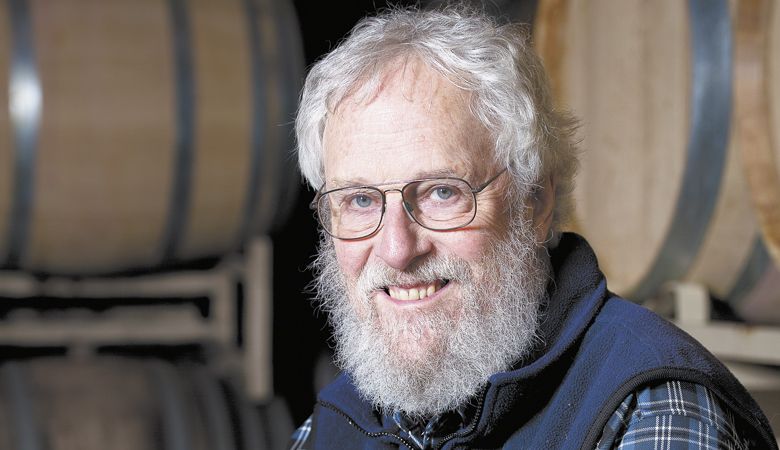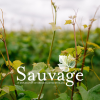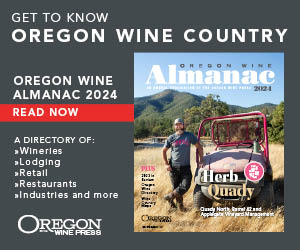Q&A: Myron Redford
Willamette Valley wine original
Myron Redford moved to Amity after learning winemaking in the early 1970s from Lloyd Woodburne and Neal Peck at the Associated Vintners Winery in Washington. In 1974, Redford and business partner Janis Checchia purchased an existing vineyard in Amity. The original owners, Jerry and Anne Preston, planted Pinot Noir and Riesling vines in 1971 and 1972. The next two years were spent learning farming and preparing for their first vintage. Redford built the winery in 1976, with a carpenter friend and two high school students; while the winery was under construction, he produced Amity Vineyards’ first commercial wine. In 1988, Redford and his wife, Vikki Wetle, were the first in North America to release a 100% true Gamay Noir. He also produced Oregon’s first organic, sulfite-free Pinot Noir in 1990, Eco-Wine. Amity sold its operations in 2014 to Union Wine Co., based in Tualatin.
Before planting your vines or making your first wine, how did you first become interested in wine?
MR: My interest in wine began in 1966 on a hitchhiking trip from Ankara, Turkey, to London. It began in Bulgaria. We had gotten lost in the evening going through Veliko Tarnovo, the former capital of Bulgaria. A local, with whom our only communication was his three words of German and hand gestures, had us on a trolley line going out into the black outside of town. He finally said to get off where it looked like the middle of nowhere. He directed us across the street and up a trail. We were sure he was taking us to a place to waylay us. The more worried we looked, the more frantic he became trying to calm us and guide us up the hill. Finally, we broke out of the forest into a lighted camp full of foreigners. He said “See, see,” and dragged us to the bar and ordered three shots of Slivovitz. I had had an ulcer in Turkey and was not supposed to drink any alcohol, but it was no use trying to tell him that. I downed the Slivovitz and he promptly ordered another. I awoke the next morning with no ill effects and decided that I could drink.
Over the next month, I tried wines in Bulgaria, Romania, Yugoslavia, Austria and Germany. I was amazed by the variety and differences in the wines. In the Mosel Valley, I got to experience how the same varietal, Riesling, could taste so different a few kilometers apart. I was hooked, and when I returned to college at Antioch in Ohio, I began trying all the local wines I could find. I kept doing that in all the cities I worked in over the next two years under Antioch’s work-study program. When I graduated, I returned home to Seattle and began visiting California wine country.
I eventually heard of wine being grown in Oregon and tried my first wine in 1970 or ’71 from Hillcrest Winery. A while later a friend told me about Jerry Preston and his vineyard in Amity. As they say, “The rest is history.”
Are you currently involved in wine in any capacity?
MR: I have a small, 7.3-acre vineyard on our farm and home in Amity. I have no involvement in wine except to drink it and occasionally sell some of my very extensive Oregon Pinot Noir-focused wine cellar. I bottled way more large-format (1.5 to 5 liters) than I have been able to use.
What are your passions now that you’ve retired?
MR: For the first years after I sold the winery, Vikki and I traveled a lot. We took Viking River cruises in Europe, Russia, Myanmar and Vietnam/Cambodia. We visited Turkey several times and went to Greece together. I also made several trips to French wine country with a wine-loving buddy.
The last few years I have focused on resurrecting my orchard. It was terribly neglected when I owned the winery. I also intensely love planting and maintaining our large garden.
What are some the latest Oregon wines that have really impressed your palate?
MR: I have enjoyed the wines of Division Wine Company, Grochau Cellars, Ransom Wine & Spirits, Vincent, Carlton Wine Cellars, Silas Wines and Brickhouse. Also, the Amity Vineyard-labeled wines of the new owner, Union Wine Company. I also loved their “Nouveau” in a can. I made Nouveau for years and was glad to see the tradition continued.
Any advice for new winegrowers/winemakers joining the wine industry?
MR: Keep your day job. Start small. Don’t expand too quickly. If you are a grower aiming to have a winery or a passionate winemaker looking to expand, remember for most winegrowers, the passion is in the growing and making; then, you have to sell it.
Anything you miss about making wine or growing wine grapes?
MR: After the financial crisis of 2008, the next six years of trying to stay afloat and pay off all the people I owed money to — I paid all of them eventually — crushed whatever love I had for the wine business. I was just glad to get away. I am still a grower, but my heart was never in growing grapes; it was making wine.









